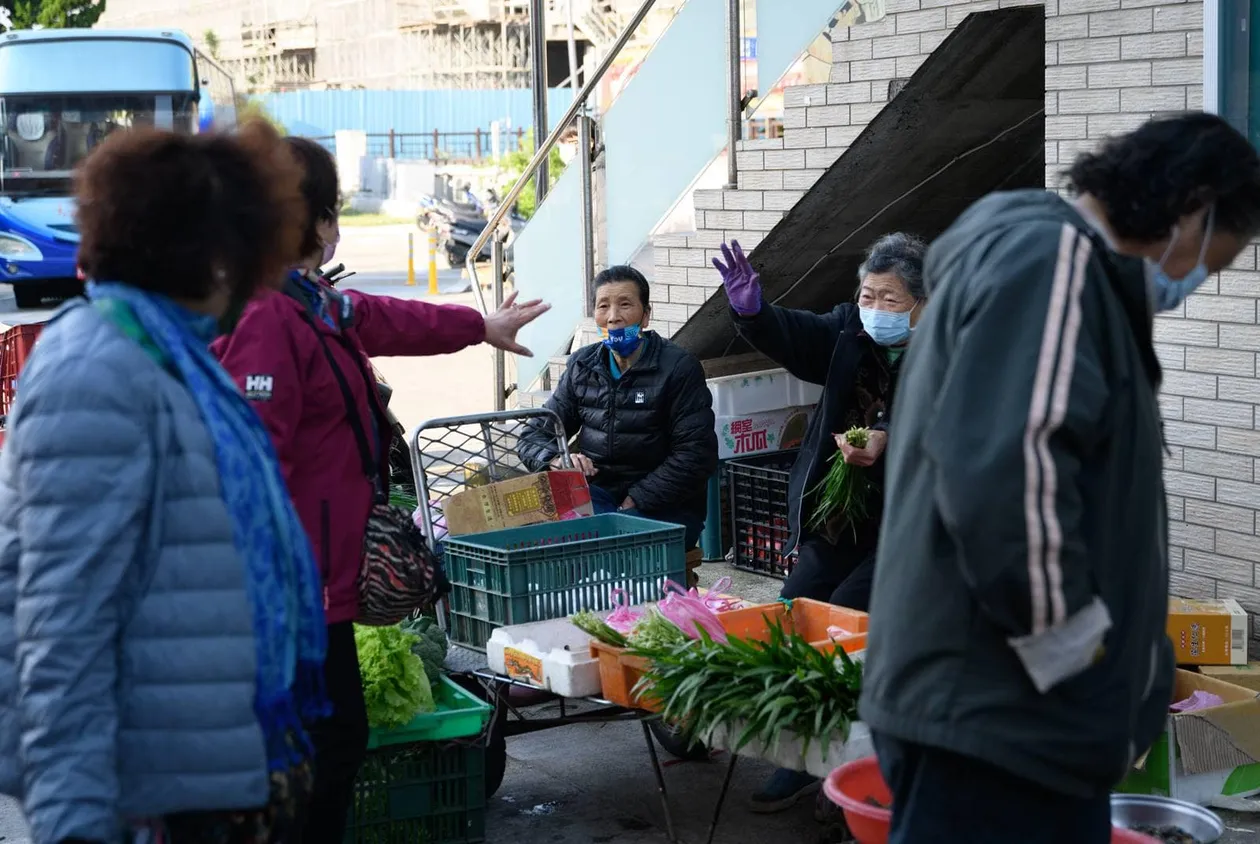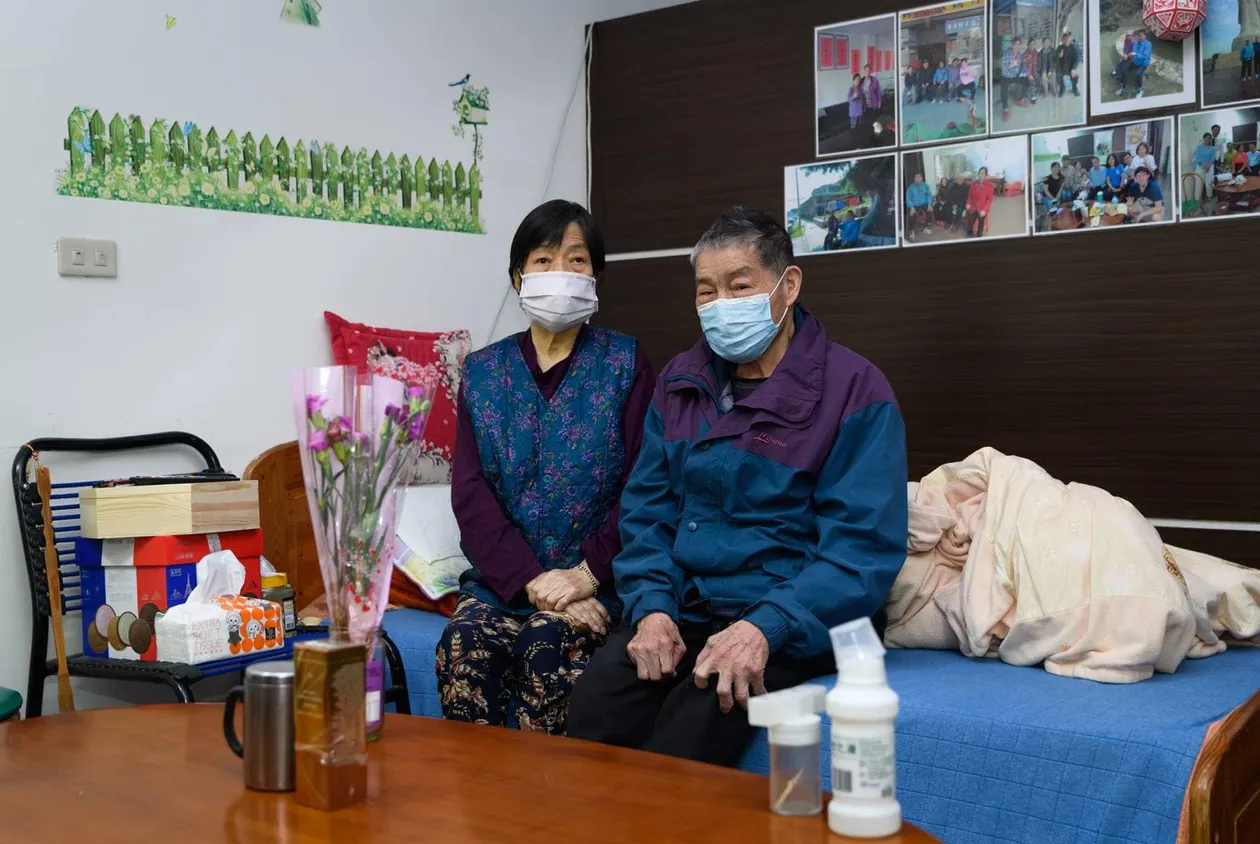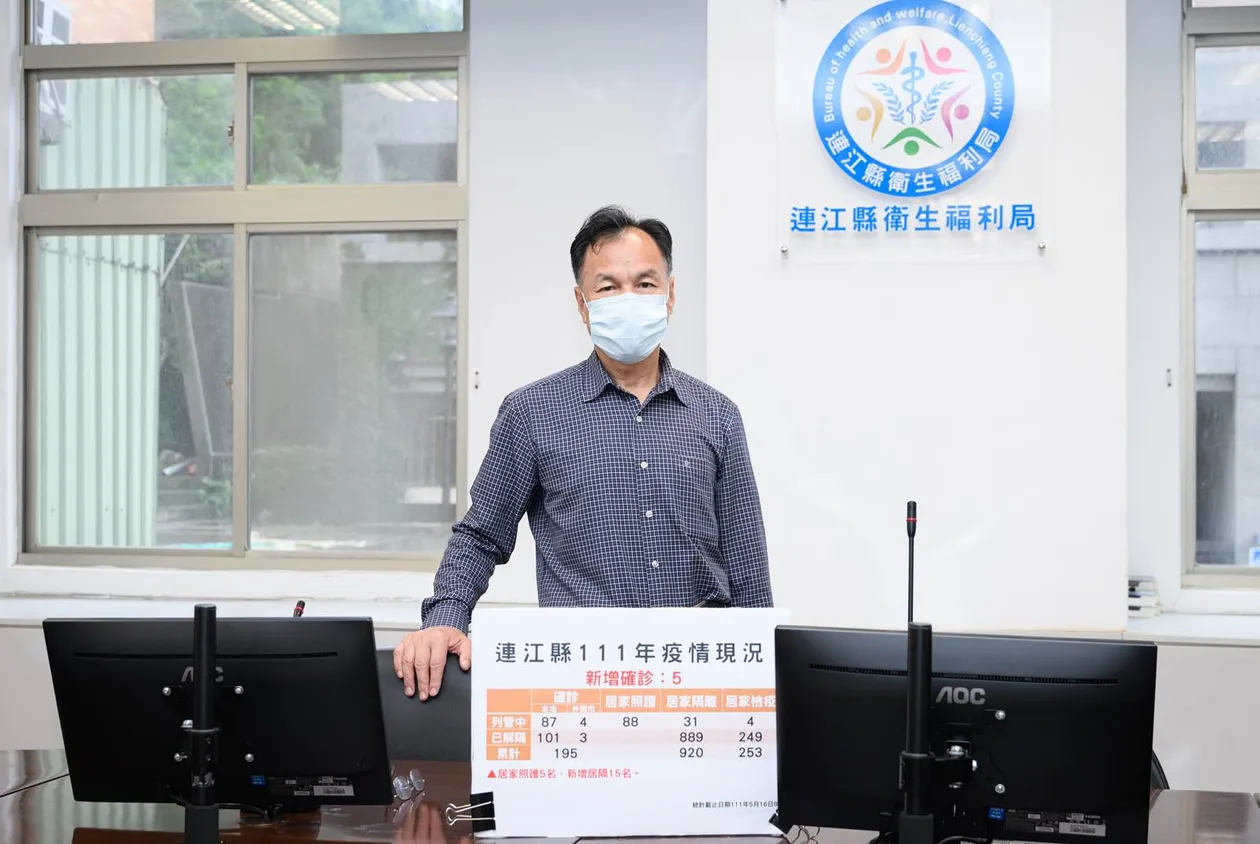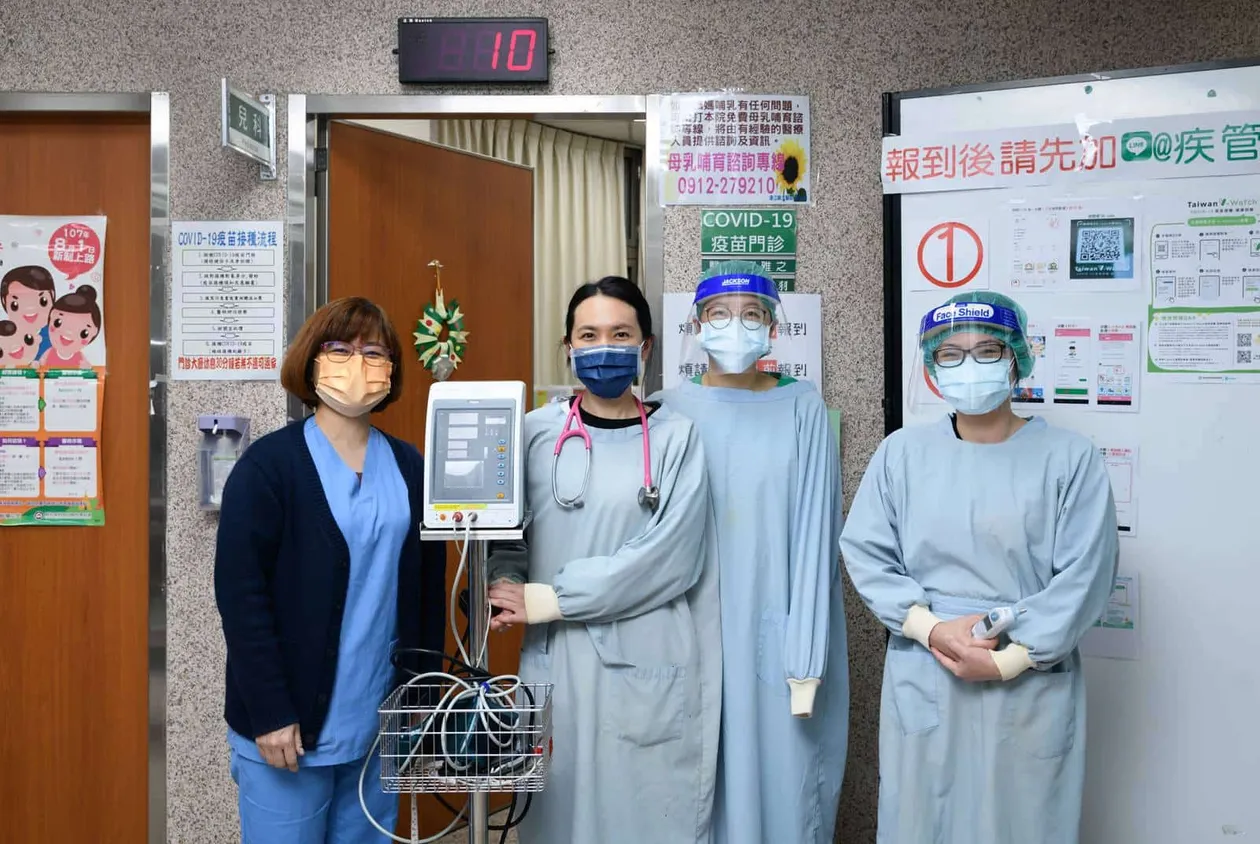What is behind Matsu’s successful COVID-19 record?

Source:Pei-Yin Hsieh
The inhabitants of Taiwan’s outlying Matsu islands not only hold the national longevity record, they have also managed to weather the COVID-19 pandemic without a single severe case and zero deaths.
Views
What is behind Matsu’s successful COVID-19 record?
By Yi-hsuan Linweb only
Between the beginning of the year and May 23, Taiwan registered a total of 2,913 serious or critical coronavirus COVID-19 cases, of whom 583 died. But Matsu (Lienchiang County), an island group off China’s southern coast with just 13,000 inhabitants, registered only 433 confirmed infections, all asymptomatic or light cases, during the same period.
As a precaution, 16 people were hospitalized because they were considered high-risk patients due to age, chronic conditions, or obesity. Meanwhile, twelve of them have been released, and the remaining four are in stable condition.
How did Matsu achieve such a stellar record?
Of the 941 Matsu people above the age of 65, as many as 742 have been fully vaccinated and received a booster shot. Feng Chao-ren, 83, is one of them. Feng completed his vaccination schedule at the end of last year.
Lienchiang County has the highest COVID-19 vaccination rate nationwide, far ahead of the other 21 local governments.
As of May 16, 82.7 percent of the county’s seniors over 65 had received three jabs, compared to a national average of 70.5 percent, statistics by the Central Epidemic Command Center (CECC) show.
Public health experts believe that the high vaccination rate is the secret behind the stellar “zero critical cases, zero deaths” performance of Matsu, whose medical resources lag those of Taiwan proper.
“All of Matsu, the entire county has been vaccinated; how could there be critical cases?” asks former Health Minister Yeh Ching-chuan.
On Taiwan proper, many senior citizens did not dare to get vaccinated out of concern over media reports of potential side effects. Why were the people on Matsu unfazed?
 Feng(right) and his wife (Source: Pei-Yin Hsieh)
Feng(right) and his wife (Source: Pei-Yin Hsieh)
Feng, the octogenarian, beats his chest as he professes that he did not suffer any side effects despite having received three jabs. “When others asked me, I told them: No problem; don’t believe the rumors.”
“The public announcements always told me to go and get vaccinated,” recalls Feng. This has been the case for all vaccination campaigns, be it chickenpox or influenza.
Feng’s wife, who suffers from a chronic condition and has been bedridden for many years, rests in a corner of the living room. She did not get fully vaccinated after her first shot because of her poor health.
Like Ms. Feng, about 200 seniors in Matsu have not yet received a booster shot, most of them because they are physically not up to it.
Reason 1: Customary vaccination during military garrison times
Matsu residents’ high acceptance of vaccinations owes to its past as a garrison island.
During the period of military administration on the island, which ended in 1992, influenza vaccinations were compulsory for military personnel. Under slogans that stressed the shared destiny of soldiers and civilians on the isles, vaccination was mandatory for the locals.
After military rule ended, vaccinations were no longer compulsory, but the idea that “vaccinations protect your health” had taken hold among the older generation.
Medical personnel do not recall having come across a Matsu senior who refused to get vaccinated, regardless of the disease the vaccination was to prevent.
Lin Yu-yen, who has been serving as head nurse at the Lienchiang County Hospital for 28 years, says demand for vaccinations was so strong late last year that the hospital ran out of serum. Elderly eager to get their booster shot would stop her in the streets and ask: “Have the vaccines yet arrived? When can I get my jab?”
Reason 2: Widespread trust in public health personnel
Yeh, the former health minister, thinks that the county’s high vaccination rate is a result of the strong commitment of its public health workers. “Matsu does not have many physicians, but we do have many public health workers; that’s why they were able to achieve such a high vaccination rate.”
The most representative public health enthusiast is Lienchiang County Magistrate Liu Cheng-ying (劉增應).
 Lienchiang County Magistrate Liu Cheng-ying (Source: Pei-Yin Hsieh)
Lienchiang County Magistrate Liu Cheng-ying (Source: Pei-Yin Hsieh)
The vast majority, some 90 percent, of physicians on Matsu are graduates of Taipei Medical University. Liu and Kaohsiung Mayor Chen Chi-mai are the only two local government leaders who have a background in medicine and public health.
Liu became head of Lienchiang County’s Department of Health in 1993. “Back then, I looked at statistics and discovered that Matsu’s liver cancer and stomach cancer ratios were five times higher than on Taiwan proper,” notes Liu.
The finding sparked Liu to return to school, studying for a master’s degree in public health at National Taiwan University (NTU). Liu asked his supervisor at the time, Academia Sinica member Chen Chien-ren, for help, and the two went on to develop a prevention program.
The program became one of Taiwan’s most successful public health campaigns.
To screen people for stomach cancer, Liu collaborated with NTU Hospital, including Hospital President Wu Ming-shiang, and Liver Disease Prevention and Treatment Research Foundation Chairman Hsu Chin-chuan. The trio once participated in the screening program, touring villages across the county. The villagers were tested for Helicobacter pylori (H. pylori), bacteria which can cause ulcers and ultimately stomach cancer. At the same time, they spread the message about the importance of preventive health checks.
After more than 20 years of public health efforts, the ratio of Matsu people carrying H. pylori had dropped from 70 percent to 10 percent in 2020. This is markedly below the nationwide average of 31 percent.
Over the years, the grassroots health education efforts paid off. “For Matsu residents, getting an annual health check has become a habit,” asserts Liu.
Also thanks to the successful eradication of the cancerogenic bacteria, Matsu residents have become the longest-lived people in Taiwan. On Matsu, average life expectancy stands at 85.76 years of age, compared to the nationwide average of 80.9 years.
Chen Mei-chin, head of the county’s Department of Health, says “Our volunteers are the neighbors; the elderly encourage each other to get vaccinated, asking ‘Have you gotten your jab yet?’.” Thanks to the isle’s tight-knit communities, public health campaigns can be promoted quite effectively.
Reason 3: First to introduce ‘vaccination at home’
Head nurse Lin points out “For the elderly, the biggest problem is not that they don’t want to get a vaccine but that they can’t get out of the house to get one.” The county had already begun to offer government-paid vaccinations for the elderly in 2001, earlier than Taiwan proper.
 The 'vaccination at home' medical team in Lienchiang County (Source: Pei-Yin Hsieh)
The 'vaccination at home' medical team in Lienchiang County (Source: Pei-Yin Hsieh)
At the time, a senior told her, “I want to get vaccinated, but I can’t go to the hospital. Can’t you come to my home and vaccinate me there?”
They began to run a shuttle service, using special vehicles for patients in home care to bring the patients to the hospital for vaccination. And then Lin put together the first mobile vaccination team in Taiwan, consisting of one physician, a registered nurse, and two ambulance drivers from the fire brigade.
Every year, the team vaccinated around 30 seniors who were not fit to leave their homes. They continued the tradition after the COVID-19 pandemic hit.
The islanders still maintain a high level of alert when it comes to the prevention of infectious diseases, a remnant of the times when the island housed tens of thousands of soldiers.
Presently, only Nangan, the largest of the five major islets in Matsu, boasts a government-run hospital. The other isles have only public health centers. For most surgeries, islanders need to be brought to Taiwan proper.
That’s another reason why the people on Matsu prefer to take precautions to not get ill in the first place. Feng, the fully vaccinated octogenarian, sums up his philosophy: “Only if you protect yourself can you ensure that young people who need to work won’t be affected.”
County Magistrate Liu is familiar with the local mindset. “Medical resources are hard to come by on an offshore island. Therefore, the Matsu people know that prevention is by far better than treatment.”
Have you read?
♦ Updated daily |Taiwan’s Covid-19 Outbreak
♦ How can Taiwan learn to coexist with COVID-19?
♦ COVID-19 spread in Taiwan could kill 20000 unvaccinated seniors
Translated by
Susanne Ganz
Edited by TC Lin
Uploaded by Ian Huang






